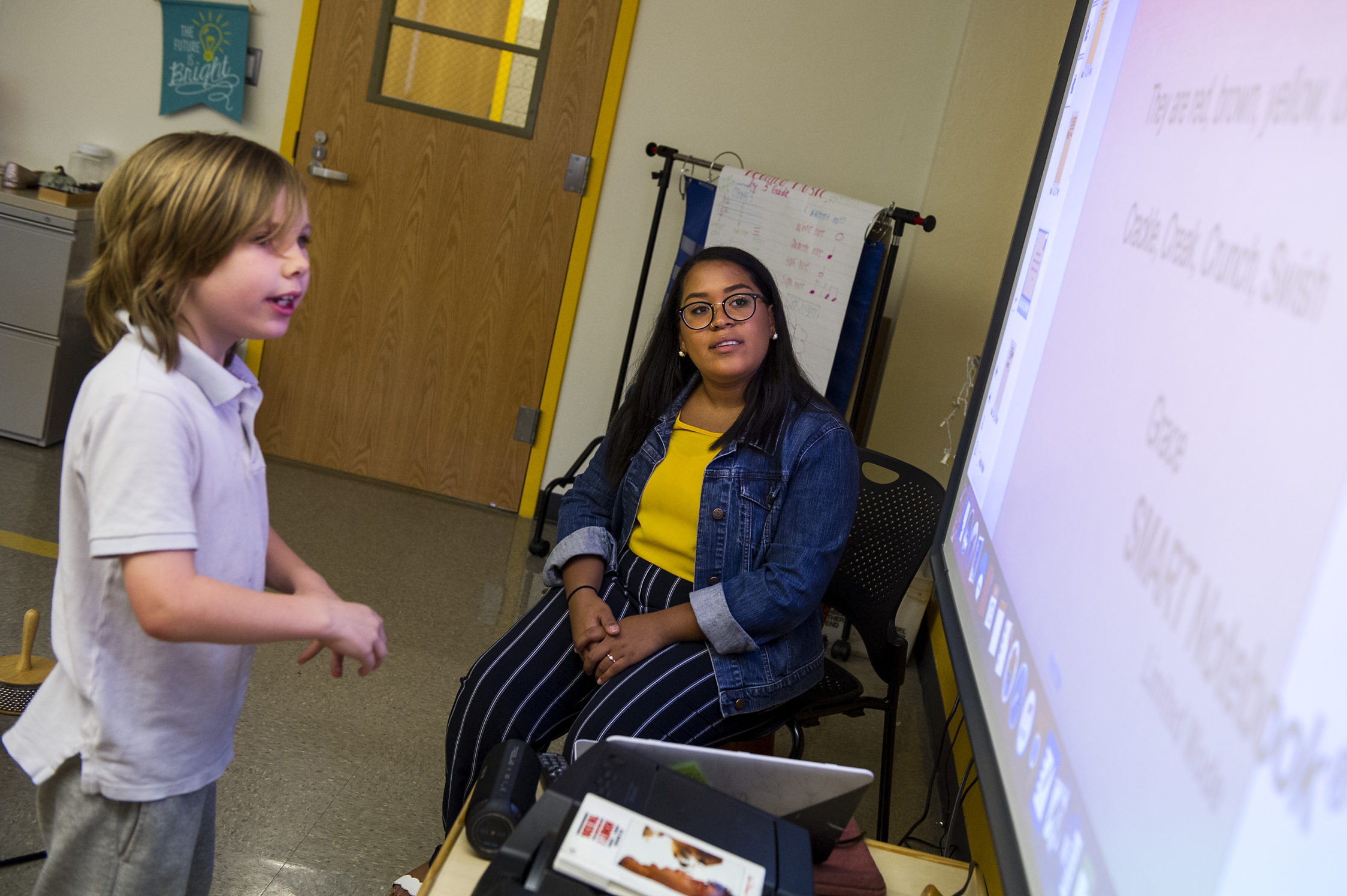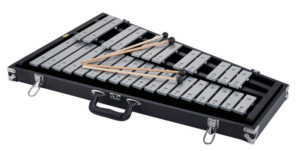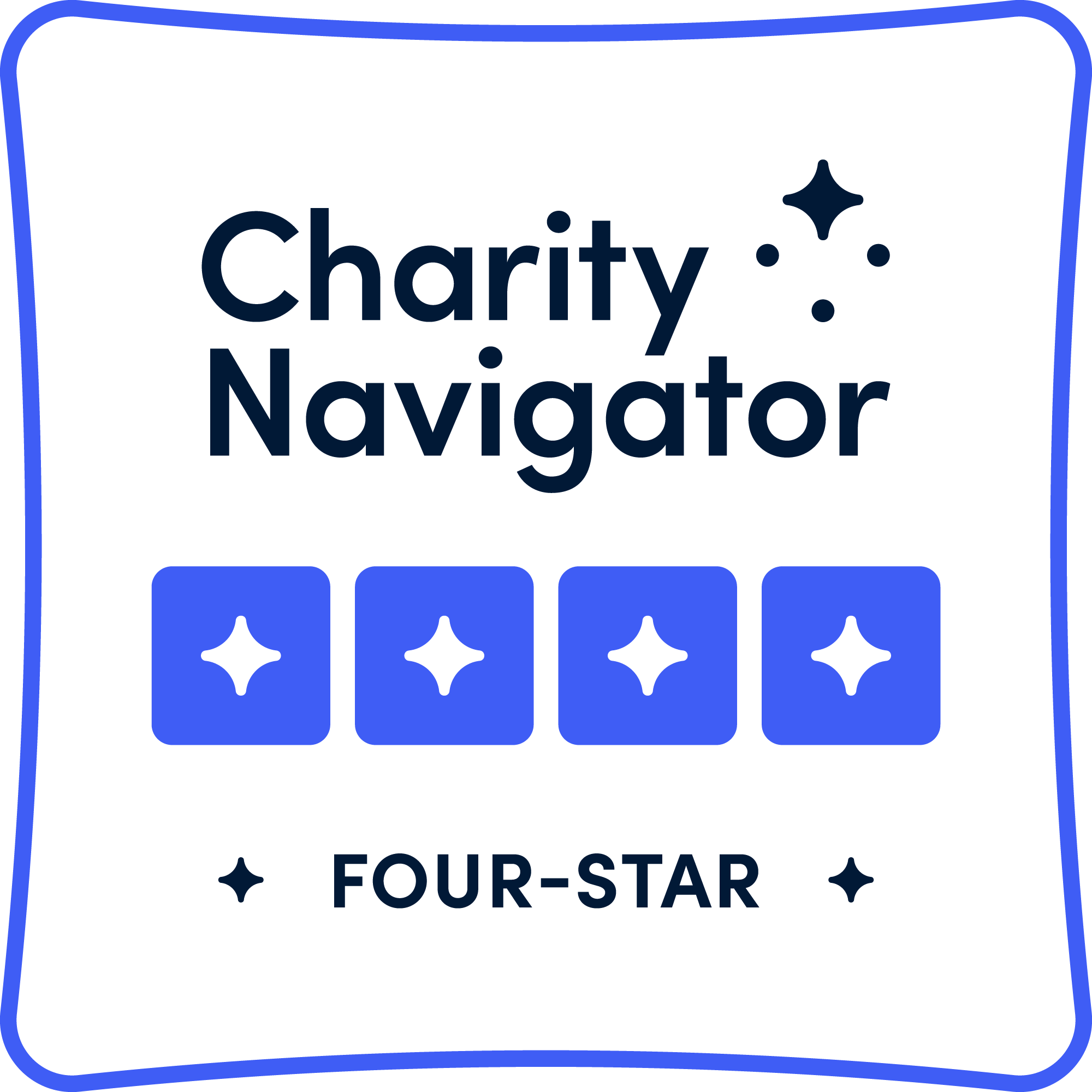Facing Challenges Together
By ETM Staff
Leah is a third-year ETM teacher teaching music at PS 483 in the Bronx. Like all NYC public school teachers, Leah knows that some of her students have or are facing great challenges in their lives outside of music class. Bullying, issues at home, food insecurity, or other traumas can manifest themselves in negative behavior at school, and blindside teachers.
 Knowing that the children in her music class aren’t always going to be at their best because of circumstances out of her control, Leah approaches her class holistically: “What’s up with this kid, what do they need?” Leah knows it’s not always new sheet music, or another pull-out lesson. Sometimes what her students need is a teacher who can give them space, a place to safely express themselves, and a little extra attention from a trusted adult.
Knowing that the children in her music class aren’t always going to be at their best because of circumstances out of her control, Leah approaches her class holistically: “What’s up with this kid, what do they need?” Leah knows it’s not always new sheet music, or another pull-out lesson. Sometimes what her students need is a teacher who can give them space, a place to safely express themselves, and a little extra attention from a trusted adult.
Leah teaches fourth-grader “Daniel,” who is prone to tantrums. Last year, as a third-grader, music and music class itself seemed to overwhelm him, triggering upsetting outbursts that were not only disruptive but also exhausting for Daniel and Leah both.
“What’s up with this kid, what does he need?” she asked herself, as she always does. If the class structure was triggering, what other aspects of music education could she use to connect with Daniel? How could she get Daniel to healthily express himself?
With this in mind, Leah recently introduced Daniel to the glockenspiel, an instrument similar to a xylophone. A few moments with the glock, hammering away with his mallets, and Daniel was transfixed. Instead of getting stressed by “restrictions” of music class, Daniel was released by the freedom of the glockenspiel, the physicality of the instrument and the bell-like sounds it made.
These days, Daniel is enjoying music class more than ever, and he plays the glock regularly. “He doesn’t have a good music class every week, and that’s fine,” says Leah, knowing that Daniel will continue to learn to trust his  classmates and himself. But if he needs her–for a hug, or for a few moments of quiet in her office, for a new glock mallet–she’s committed to being there for him, and all her students.
classmates and himself. But if he needs her–for a hug, or for a few moments of quiet in her office, for a new glock mallet–she’s committed to being there for him, and all her students.
Teaching Daniel this fall has been a good reminder for Leah that her students come to class with all sorts of challenges she can’t know about, and she’s determined to become a more sensitive teacher. “I’m more aware of the way children really understand the world,” she says, and she’s committed to teaching them how to fill it with song.
To learn more about our teachers and the tremendous work they do in 70 NYC schools, please visit us at ETMonline.org/about.
- In German, the word glock means “bells” and spiel means “to play.”
- The difference between the xylophone and glockenspiel? The glockenspiel has steel bars.
- Glockenspiels have been popular for centuries in classical music, but you can also hear them in some modern music as well including artists such as: Bruce Springsteen, Jimmy Hendrix, the Beatles, and Panic at the Disco!




